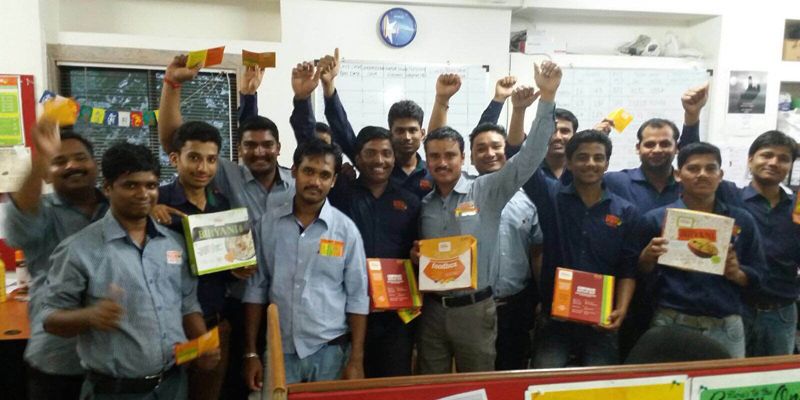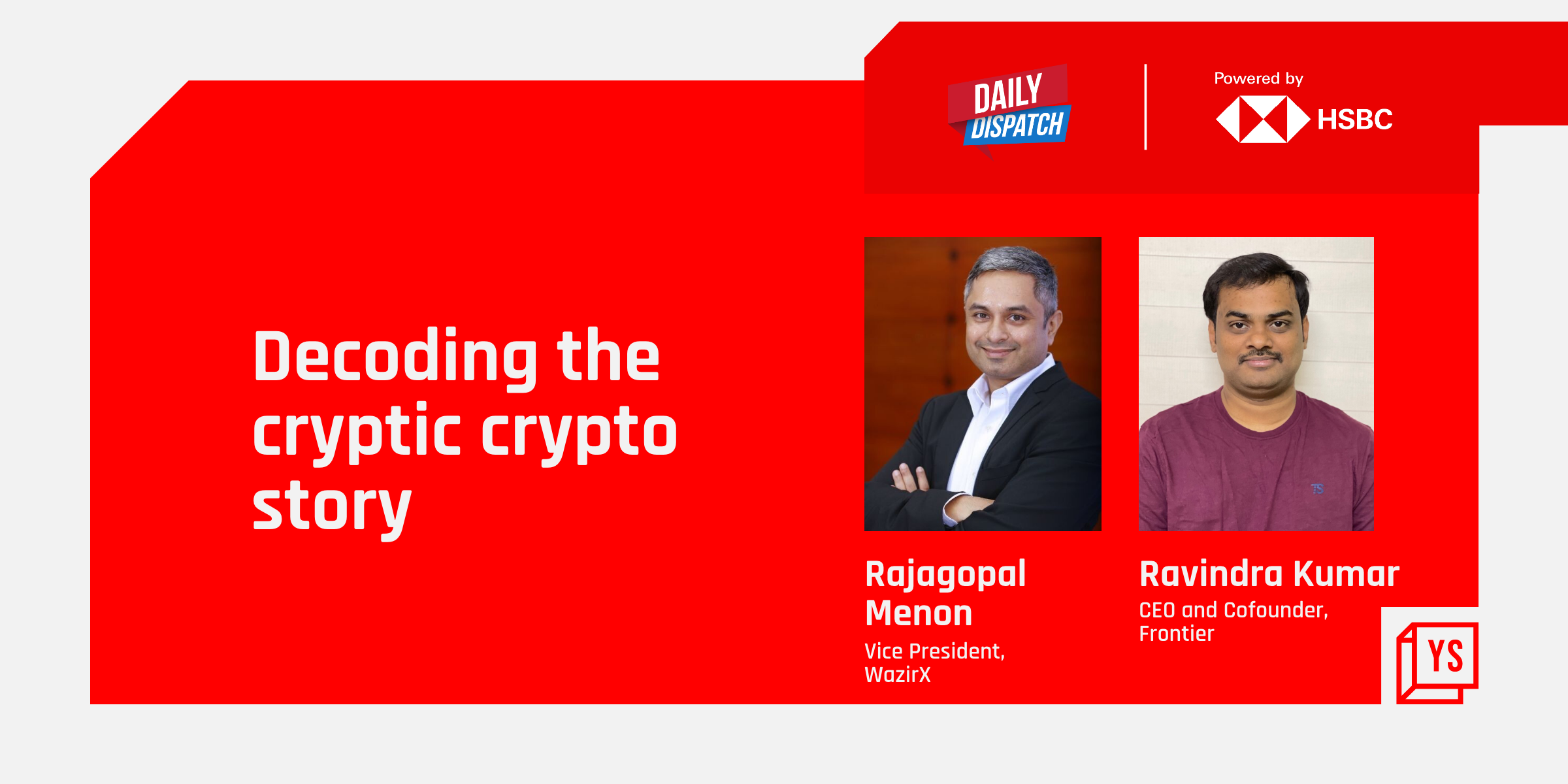With DUM AA DUM, you can now order your favourite rajma chawal Domino's style
It has been a long day at work and with hunger pangs taking over you have the energy to neither cook nor eat fastfood. It is to bring the convenience of quick service restaurant (QSR) to Indian cuisine that Rakesh Rajendran, who has several years of experience in the manufacturing sector, decided to start DUM AA DUM Indian Kitchen and Grill in Pune.
The idea is to deliver freshly-cooked food using traditional recipes. Rakesh says the team closely studies the science involved in cooking these foods and breaks it down into simpler steps, which can be replicated using a combination for technology and processes.

“This approach has helped us to cracking the holy grail of how to make an Indian-food QSR scale up and deliver consistent quality food without having to resort to the typical cook and freeze food centrally, then thaw, re-heat and serve methodology,” adds Rakesh.
Great restaurant food but what about delivery
The idea of starting a QSR food-delivery startup came to Rakesh after facing a similar problem multiple times. He would find that whenever he wanted Indian food home-delivered from his favourite restaurants, he would find the quality varying significantly on each occasion along with the service times.
It occurred to him that unlike a Domino's or a Subway or even a Mc Donald's, where the quality of food and service was consistent, Indian food restaurants struggled with serving similar great quality food consistently due to their dependence on the expertise level of the chefs on hand. “I realised that if we were able crack the consistency and scalability challenges, then there was a really big opportunity for establishing a global Indian QSR brand,” adds Rakesh.
Onboarding the team
Rakesh was able to convince ex-colleagues working in the US and Japan about the potential of establishing a global Indian QSR brand. They all pitched in as angel investors and he was able to convince ex-colleague Tushar Bhole to quit his job at Capgemini and come on board as a co-founder.
With one central commissary, DUM AA DUM has 13 live kitchens across Pune. The team claims they serve close to 90 percent of the neighbourhood. Rakesh adds that close to 88 percent of their sales comes from repeat customers. “All our internal accruals based on a 60-percent gross margin go towards developing our capabilities to create a scalable model,” adds Rakesh.
To ensure that they have a strong base, the team leans heavily towards recruiting staff from under-privileged backgrounds. Rakesh adds that they have working partnership with NGOs like PRATHAM, Pace and Don Bosco where they help tailor curriculum for vocational courses.
The American dream
The team currently is in the process of creating a customer-facing outlet format and menu design that is targeted towards creating an Indian food QSR brand for the North American market. “We intend to create a palate-friendly Indian food option besides the hugely successful specialty QSR chains like Taco Bell, Chipotle, Panda Express and Benihana. We plan to launch our North-American operations in 2016,” adds Rakesh.
The team currently working with FDA-approved food ingredient exporters to develop the base marinades, sauces and other ingredients. All back-office activities will be managed out of the India office, whereas front-end operations will be driven by the US division.
Sekhar Seshan, one of the core investors at DUM AA DUM, says he invested in the idea and the team because of the kind of use-cases the team was building. While there are several players in a similar space, he adds that the founding team was doing their research and working on the right path towards developing a strong Indian food-based QSR brand.
The curious case of QSR
It is interesting that several startups are looking at building a QSR-based setups for Indian foods. One of the other players is Mumbai-based Charcoal Biryani, which too raised a seed funding round. Most of these startups were established with the idea of bringing in a similar ‘Domino's’ or ‘Subway’ model to Indian cuisine.

Apart from this Faasos too had begun with a similar model but it soon pivoted.
Seedfund Venture Partner and accomplished investor/mentor Sanjay Anandaram says that most of the technology-enabled food businesses are operations-intensive. “Most of these app-based food businesses gain the initial traction in certain pockets of a city, but the same cannot be expected from all parts of the country,” he adds.
Anand Lunia, Founder, India Quotient, says that food as such is a very operationally-heavy business and it needs to be self-sustainable for at least a decade before it can truly penetrate the market.
For a food technology-enabled business, as we know it, the operations and backend process need to be tightly managed and governed.
Consistency is another key in the business; one needs to ensure the food is consistently of good quality, and it needs to be served at the right temperature, at the right time. And this isn’t an easy task. According to Anand, in an operations-heavy business, only those who are truly passionate about food can work along the different challenges that come with scale.
However, the space nevertheless has more players coming in, so the question that arises is if there is a genuine problem that needs to be solved and startups are looking to crack that in the market, or if it is just another easy-to-build technology.











